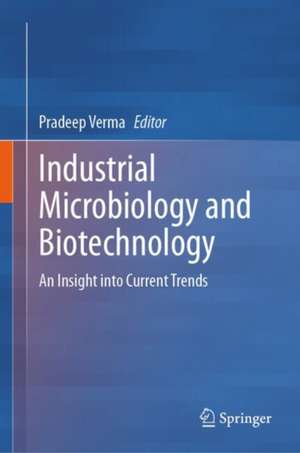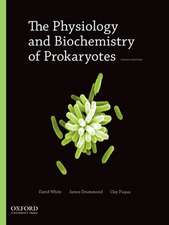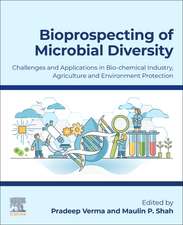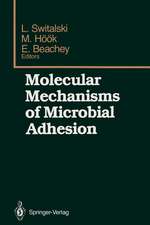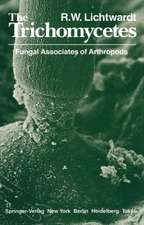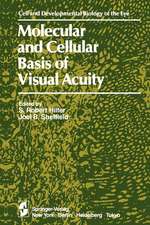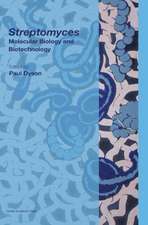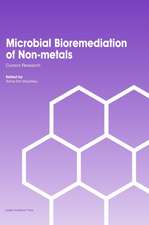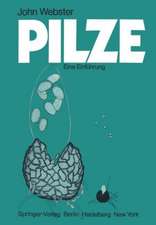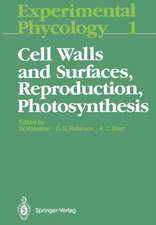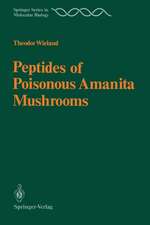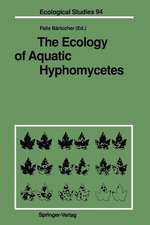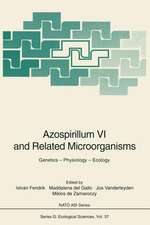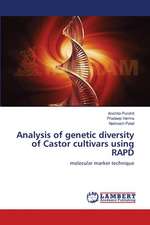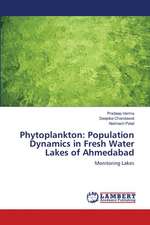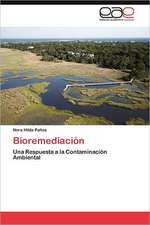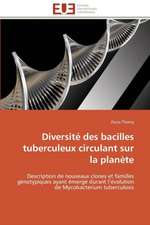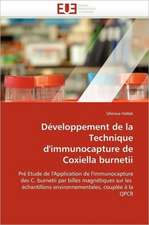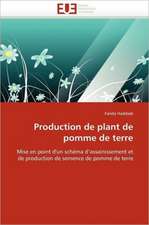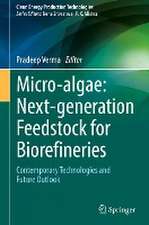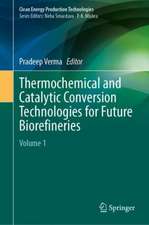Industrial Microbiology and Biotechnology: An Insight into Current Trends
Editat de Pradeep Vermaen Limba Engleză Hardback – 26 iun 2024
This book serves as a great reference for researchers, environmentalists, microbiologists, biotechnologists, and graduate, post-graduate students, and doctoral students working on microbial biotechnology and industrial microbiology.
| Toate formatele și edițiile | Preț | Express |
|---|---|---|
| Paperback (1) | 1130.44 lei 38-44 zile | |
| Springer Nature Singapore – 10 iul 2024 | 1130.44 lei 38-44 zile | |
| Hardback (4) | 1393.51 lei 6-8 săpt. | |
| Springer Nature Singapore – 9 iul 2023 | 1409.03 lei 3-5 săpt. | |
| Springer Nature Singapore – 24 oct 2024 | 1393.51 lei 6-8 săpt. | |
| Springer Nature Singapore – 8 mar 2022 | 1407.96 lei 6-8 săpt. | |
| Springer Nature Singapore – 26 iun 2024 | 1570.03 lei 6-8 săpt. |
Preț: 1570.03 lei
Preț vechi: 1914.68 lei
-18% Nou
Puncte Express: 2355
Preț estimativ în valută:
300.56€ • 309.28$ • 253.36£
300.56€ • 309.28$ • 253.36£
Carte tipărită la comandă
Livrare economică 01-15 martie
Preluare comenzi: 021 569.72.76
Specificații
ISBN-13: 9789819719112
ISBN-10: 9819719119
Ilustrații: XXI, 701 p. 101 illus., 79 illus. in color.
Dimensiuni: 155 x 235 mm
Greutate: 1.18 kg
Ediția:2024
Editura: Springer Nature Singapore
Colecția Springer
Locul publicării:Singapore, Singapore
ISBN-10: 9819719119
Ilustrații: XXI, 701 p. 101 illus., 79 illus. in color.
Dimensiuni: 155 x 235 mm
Greutate: 1.18 kg
Ediția:2024
Editura: Springer Nature Singapore
Colecția Springer
Locul publicării:Singapore, Singapore
Cuprins
Chapter 1. Significance influence of microbial biodiversity in biotechnological and industrial sectors.- Chapter 2. Significance and contribution of Microbial biodiversity in Various Biotechnological and Industrial Sectors.- Chapter 3. Fundamentals and industrial applications of modern genetic engineering.- Chapter 4. Omics role and its integration to modern-day technologies: Identification in production of industrially relevant bioproducts.- Chapter 5. Impact study of gene expression: Osmotic control, SOS response and heat shock response.- Chapter 6. Significance of microbial biomolecules, secondary metabolites and its impact on diverse aspects of human health.- Chapter 7. Molecular approaches to microbial identification of industrially significant strains.- Chapter 8. Emerging trends in novel technological advancements of oligosaccharides production and their potential applications as prebiotics with beneficial effects.- Chapter 9. Processed Food Microbiology and Safety: Risks, Trends and Future Perspectives.- Chapter 10. Microalgal Based Biorefinery Approaches Towards a Sustainable Future.- Chapter 11. Enzymes for food and industrial significance.- Chapter 12. Probiotic bacterial enzymes and cardiovascular diseases.- Chapter 13. Two-component regulatory systems in microbial pathogenesis.- Chapter 14. Significance of various aspects of food microbiology, fermentation and latest technology and its impact on human health- Chapter.- 15. Biostatistical investigation using docking mechanism and its database to investigate drug design, drug discovery, drug metabolism and prediction via drug-drug interactions.- Chapter 16. Biomaterials development using microbial products and its utilization in day-to-day life.- Chapter 17. Materials technology and its advancements involving nanotechnology, hydrogels and its impact assessment on various aspects of improving the health care system.- Chapter 18. Emerging technologies in medical microbiology for early diagnosis of diseases for better disease management.- Chapter 19. Use of Nanoparticles in the Healthcare Industry for Antimicrobial Effects.- Chapter 20. Probiogenomics and Genome Annotation in Bifidobacteria and Lactobacilli.- Chapter 21. Microbe-assisted agro-industrial waste valorization for green energy generation: A sustainable biorefinery approach.- Chapter 22. Exploring the Potential of Microbial Biomolecules in advancing human health and environmental sustainability.- Chapter 23. Mutation significance and assessment: Mutation types and selection of mutants, importance in microbial technology.- Chapter 24. Pivotal role of the biobased approaches towards a sustainable future.- Chapter 25. Impact of novel remediation technology: Significant role in the removal of toxic pollutants via sustainable approaches.- Chapter 26. Mycorrhizal fungi as technological intervention for crop productivity.- Chapter 27. Impact of novel remediation technology: Significant role in the removal of toxic pollutants via sustainable approaches.
Notă biografică
Dr. Pradeep Verma is a professor at the Department of Microbiology, School of Life Sciences, CURAJ, Ajmer, India. He received his PhD from Sardar Patel University, Gujarat, and his Master’s and Bachelors from MDS University, Rajasthan. He has worked as visiting scientist at UFZ Centre for Environmental Research, Halle, Germany, and as a PDF at ASCR Prague, Gottingen University Germany, and RISH Kyoto University, Japan. He also worked at Reliance Life Sciences, Mumbai, India. His stay at Japan and Reliance Life Sciences resulted in several commercialized national and international patents. He also worked as Associate Professor and Reader-Founder Head at GGV, Bilaspur, and Assam University, Silchar, India. During his scientific tenure, he has received various prestigious awards and fellowships such as the Ron-Cockcroft Award from the Swedish Society, UNESCO fellow, DFG fellow, JSPS PDF, and JSPS-Bridge Fellow. He is a fellow of the Mycological Society of India, the BiotechResearch Society of India, and the Association of Microbiological Society (AMI). His area of expertise involves microbial diversity and proteomics bioprocess development of microwave-assisted pretreatment of lignocellulosic biomass and value-added products, along with algal biomass-based biorefinery. He has contributed to 91+ research and review papers, 52+ book chapters and 12+ edited books. He is an editorial board member and reviewer of more than 50+ journals, including Bioresource Technology, Renewable Energy, 3 Biotech, Critical Reviews in Biotechnology, Biotechnological Advances, Bioresources and Bioprocessing, etc. He has more than 20 years of research and teaching experience in bioprocess and microbial biotechnology and industrial microbiology.
Caracteristici
Explores the potential of microbial biodiversity in diverse biotechnological and industrial sectors Discusses genomics, sequencing, and annotation for identifying valuable industrial strains Showcases integration of modern technologies to produce industrially relevant bioproducts
Textul de pe ultima copertă
This book is a comprehensive guide for industrial bioprocess development, covering major aspects of microbial processes and their role in biotechnology. It provides a selection of hyperproducers, microbial products, and metabolic engineering strategies for industrial production. It covers high cell density cultivation techniques product formation kinetics measurement and limiting parameters in large-scale process development. The first and second section of the book focuses on biotechniques, including spectroscopic concepts of light, wave, and electromagnetic theory, as well as absorption, fluorescence, phosphorescence, infrared, and Raman spectroscopy. It also covers the basic principles, concepts, biological applications, and other advanced techniques. The third section emphasizes microbial inventions and improvements in bioprocess development. It covers microbial products and recent developments in fermentation technology and also includes information on metabolic engineering. The fourth section related to microbial inventions and bioprocesses which include platforms for recombinant gene expression, as well as the development of recombinant heterologous expression systems such as E. coli, yeast, mammalian and insect cells, and plant cells used as biofactories. The fifth section of the book focuses on microbial product waste management in extreme environments, biomass waste management, bio-pulping, bio-bleaching, textiles, biofuels, and animal feed production. The book aims to provide a multidisciplinary opportunity on all aspects of microbial biotechnology. It covers recent international developments that have renewed interest in industrial microbiology and biotechnology. The book is suitable for teachers, researchers, graduate and post-graduate students, environmentalists, microbiologists, and biotechnologists.
